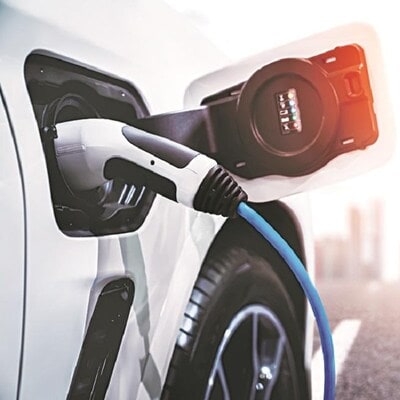The government should allow the domestic electric vehicle sector to grow naturally without relying on incentives as it would prevent India from becoming an “EV colony” for China, think tank GTRI said on Friday.
India faces unique challenges that other countries do not face when it comes to adopting electric vehicles on a large scale, he added.
These challenges include 80 percent of electricity generated from fossil fuels such as coal, frequent power outages and reliance on imports to manufacture electric vehicles at home, such as batteries and critical minerals, the Global Trade Research Initiative (GTRI) said.
“Given these challenges, rather than rushing into the fray with heavy incentives or falling into dependence on Chinese imports, India has an opportunity to let its EV sector evolve naturally. By allowing market forces to drive the sector’s growth, India can avoid becoming an ‘EV colony’ for China and forge its own path in the global EV landscape,” he added.
He also said the global EV market is undergoing a sea change, driven by high tariffs and restrictions imposed by the US, EU and Canada on imports of EVs and parts from China.
These regions account for about half of China’s global EV exports, and in a strategic shift, China is shifting its production to ASEAN countries and setting its sights on India.
“These production units would still be heavily dependent on imports from China as 70-80 per cent of parts, including batteries, would be sourced from that country. Thailand, the first country to allow local production by Chinese companies, is already facing challenges with rising imports and complaints of lower sales from established manufacturers,” GTRI founder Ajay Srivastava said.
He added that there is also a risk of China selling surplus electric vehicles in India as access to developed markets becomes more difficult.
The GTRI suggested that India should focus on achieving leadership in the next phase of electric vehicles, using a new generation of batteries.
Increasing investment in research and development (R&D) for advanced battery technologies, battery recycling infrastructure and supporting clean energy sources to power electric vehicle charging stations are some of the steps that would help boost growth in the sector, he added.
Hi-Tech Gears Chairman Deep Kapuria said the global EV market is set to face further turbulence and structural transformation as the sector is witnessing several trends that are driving its growth.
“First, many countries (developed and developing) are offering subsidies, tax benefits and other incentives to encourage consumers to switch to electric cars. Second, macroeconomic factors such as availability of critical minerals like lithium, cobalt and nickel, essential for battery production, can have a positive impact on the growth of the EV industry,” Kapuria said.
(Only the headline and image of this report may have been reworked by Business Standard staff; the rest of the content is auto-generated from a syndicated feed.)
First published: September 6, 2024 | 11:23 PM IS
Disclaimer:
The information contained in this post is for general information purposes only. We make no representations or warranties of any kind, express or implied, about the completeness, accuracy, reliability, suitability or availability with respect to the website or the information, products, services, or related graphics contained on the post for any purpose.
We respect the intellectual property rights of content creators. If you are the owner of any material featured on our website and have concerns about its use, please contact us. We are committed to addressing any copyright issues promptly and will remove any material within 2 days of receiving a request from the rightful owner.

